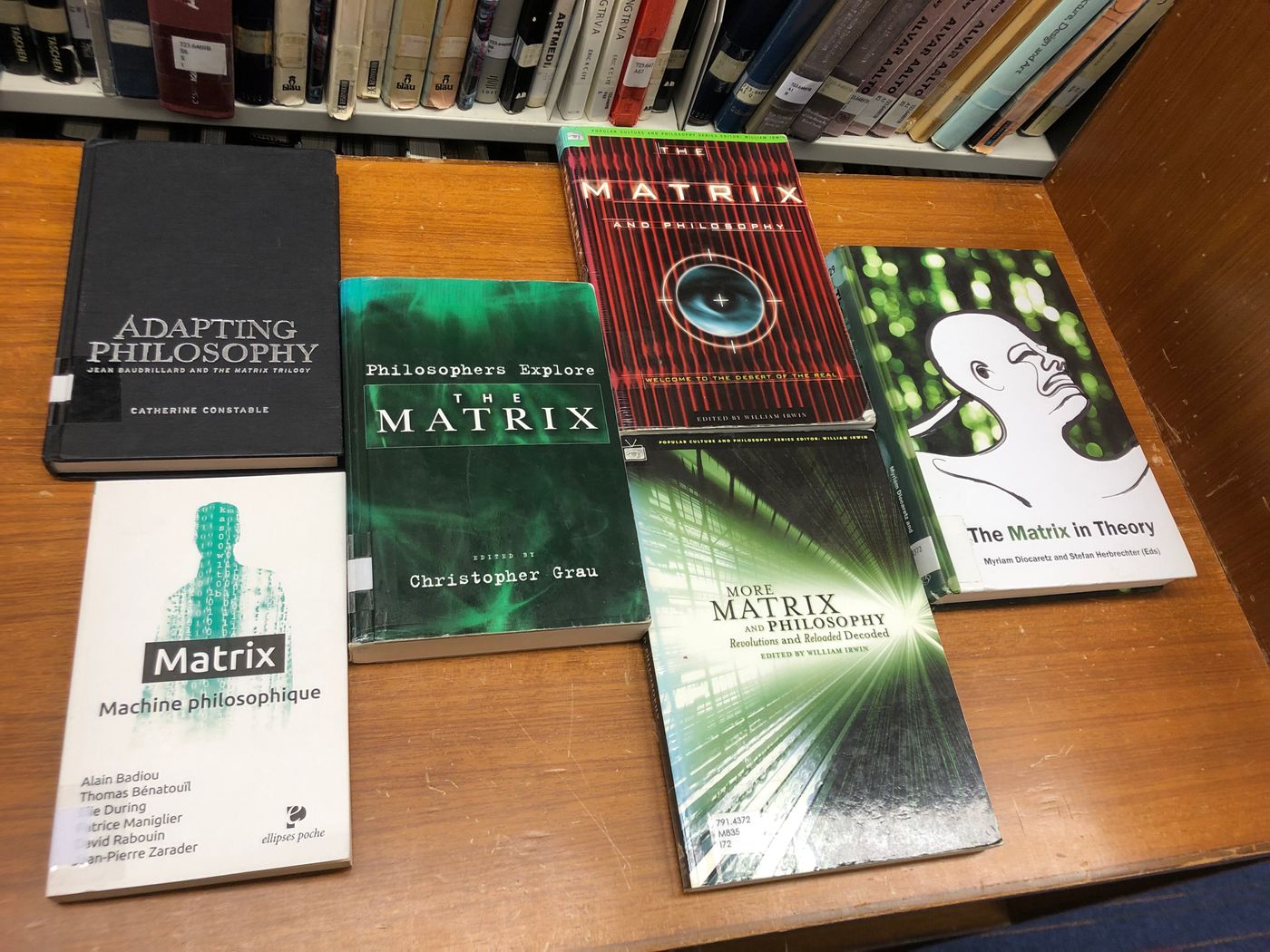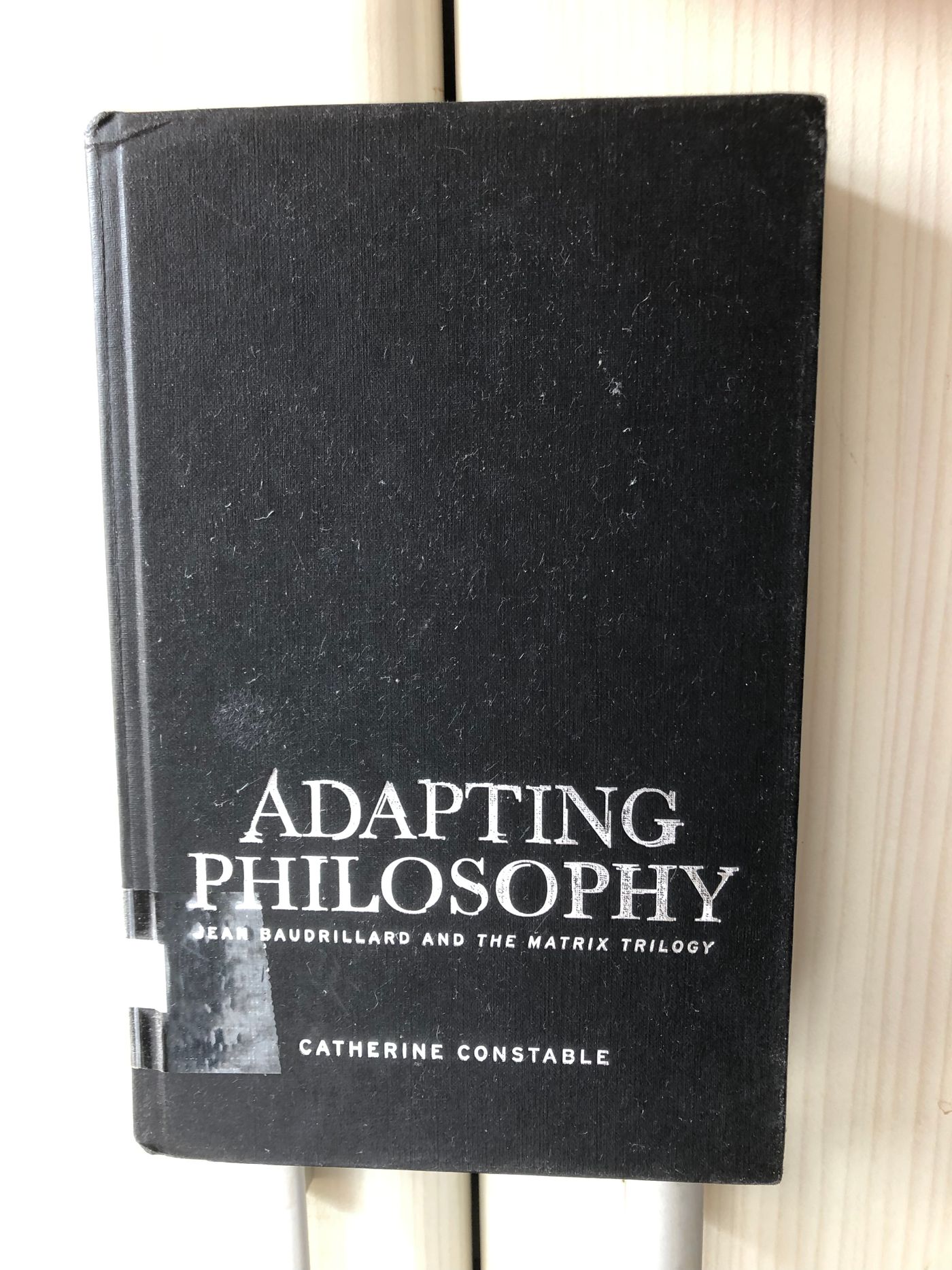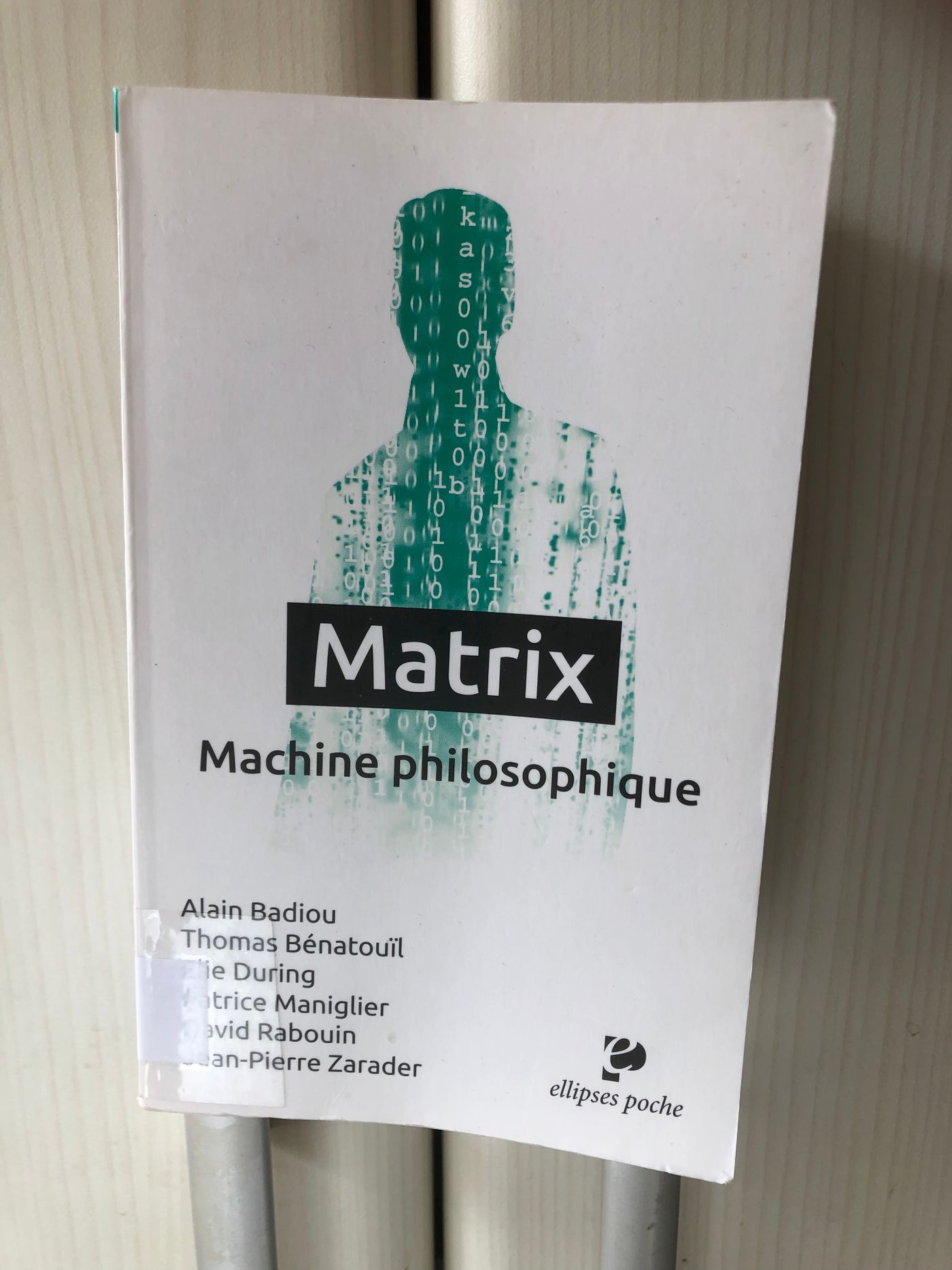Film and Philosophy

[Water Lane Inscription] Among Yunyun's derivative works, I think that Adapting Philosophy: Jean Baudrillard and The Matrix Trilogy by Catherine Constable is particularly important. Notable. This book is interesting to use the philosophical echoes caused by "The Matrix" as an example to further reflect on the intricate relationship between film and philosophy.

According to the author's observation, most philosophers who follow the trilogy like to regard it as a beginner's guide to philosophy. In good times, movies provide vivid examples for teaching theory. When it's bad, the film distorts the theory it draws from. In other words, philosophers tend to make trilogy copies of different theories, and then decide whether it is a good image or a bad image. Such an attitude implicitly assumes the superiority of philosophy, and only considers whether the film can faithfully reflect a certain theory, ignoring the special message that the film itself wants to reveal.
From the subtitle of the title, Constable focuses on Busia's connection to the trilogy. Of course, if you count the philosophical models referenced in The Matrix, the theory of Busia’s simulacrum must be the first. Especially the sarcastic person, although Busia wants to tell the world that the distinction between true and false has disappeared silently, but his critical attitude towards movies just reflects how he insists on the dichotomy between the two. He probably felt that the two directors were just clumsily copying his doctrine. Constable couldn't agree more, and he was determined to seek new research methods in order to demonstrate the philosophy of the films themselves (the philosophical project of the films themselves).

In addition, Elie During also proposed approximate ideas in his introduction to The Matrix. In his opinion, "The Matrix" is not a work of service philosophy, a new bottle of old wine, just another form to express the existing concept. Appropriately speaking, it should be a "machine" that can bring theoretical inspiration. Although this machine has just aroused the interest of many philosophers, it should never be regarded as the handmaiden of philosophy, calling on it for any accustomed information. "Matrix n'est pas un patchwork, c'est une machine." (Matrix n'est pas un patchwork, c'est une machine.)
Against this background, Bradley Bassler's recent book Diagnosing Contemporary Philosophy with the Matrix Movies is so bizarre that no philosopher would have thought about it seriously. The philosophy of film itself". To begin with, Basler claimed that the book was the start of a larger project, Matrix Philosophy. He does not intend to use the trilogy to introduce any existing concepts, but to distill the inspiration brought by the film in turn, thereby opening up new ideas, and so-called "diagnosing contemporary philosophy". Maybe it's just a game after all, but it's still a fun experiment. "Matrix Philosophy is a "machine" still under construction. He said.
Maybe the encounter between film and philosophy has never been a fog, staring at each other's dreams, no one owes the other. Žižek brought up a strange phenomenon. His friends who love to study Lacan (Jacques Lacan) assert that the director must have read Lacan, the fans of the Frankfurt School see that the matrix is the embodiment of the cultural industry, and the fans of the New Era realize that the world you and I live in is nothing but the universe and the mind changes. pregnancy. He prefers the idiot sitting next to him in the theater to the pseudo-sophisticated intellectual readings.
Like my work? Don't forget to support and clap, let me know that you are with me on the road of creation. Keep this enthusiasm together!

- Author
- More